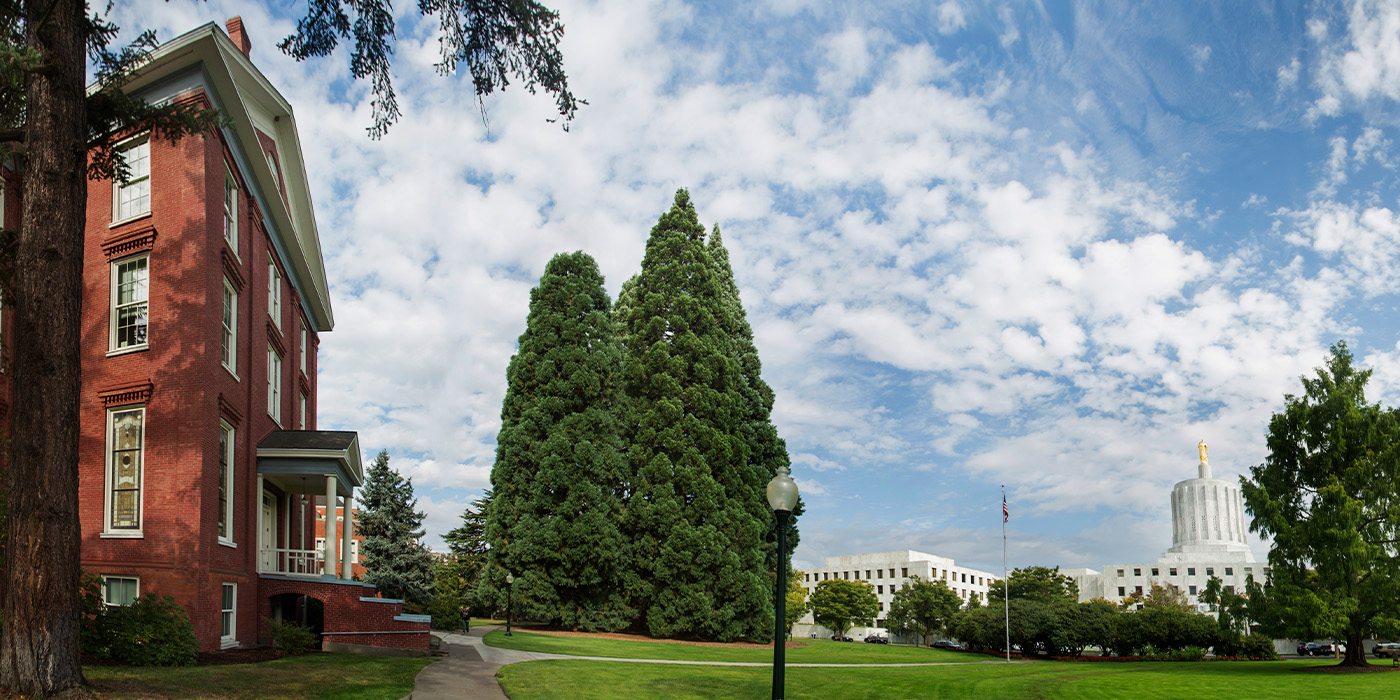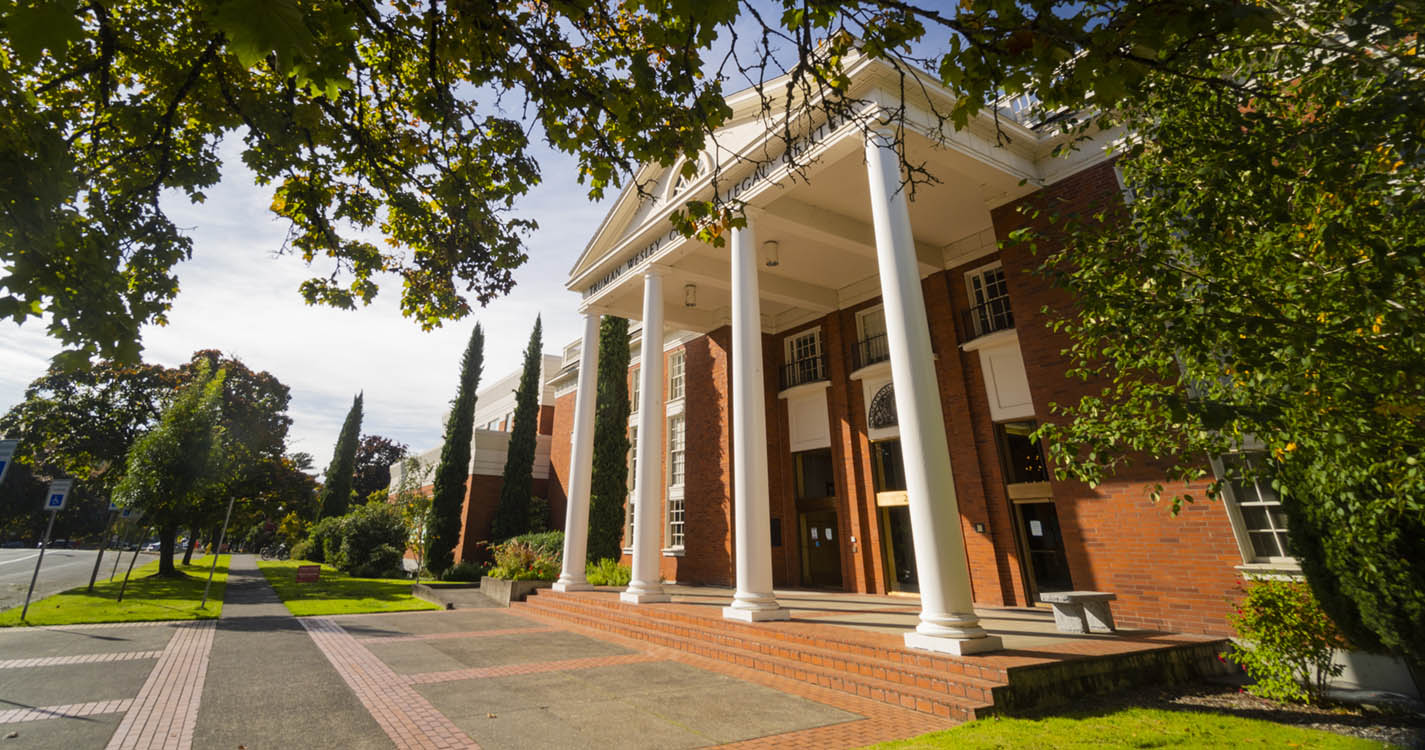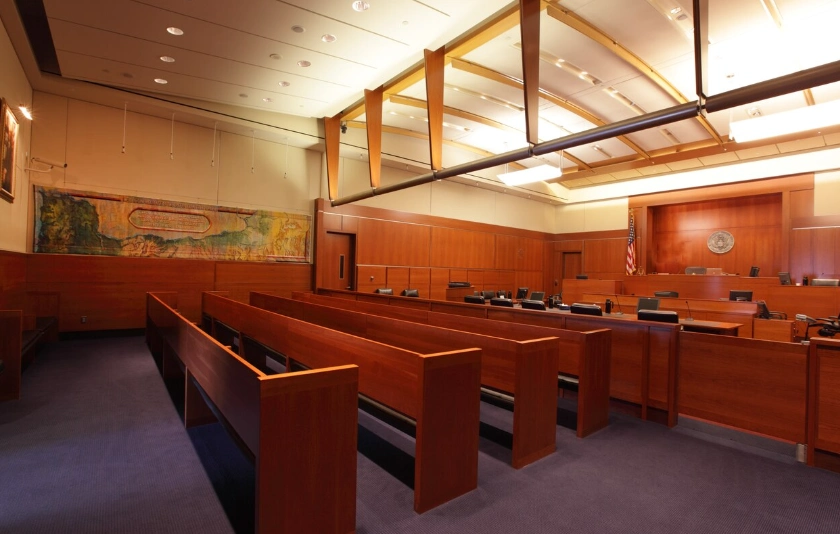Every year a select number of law students gather for the final week of winter break to participate in what has become a Willamette Law tradition, the Intensive Trial Practice (ITP) program. This week-long initiative provides students the opportunity to learn first hand what it takes to be a trial lawyer. Students spend a full week learning from local judges and members of the Bar about all the facets of preparing for and participating in a trial. The program culminates in a mock trial on the final day where local community members come to play the parts of witnesses and jury members. Started by Emeritus Professor Leroy Tornquist in 1978, this hands-on approach to teaching trial practice has continually provided students with a one-of-a-kind opportunity to gain the skills needed to be a trial attorney.
Judge Norman Hill (JD ‘94) co-taught Intensive Trial Practice alongside Judge Mary James for five years prior to her retirement last year. Now, Hill oversees the program and is consistently looking for new ways to broaden and deepen what students are able to learn in this week-long program. Designed to simulate the intensity of a real trial, the program exposes students to the techniques and skills that make a good trial lawyer. “There is no born trial lawyer, it is a skill that is developed through trial and error, and conscious professional development,” Hill says, “this program introduces students to these concepts early on in their career in order for them to come away with a sense of what’s needed to do this work.”
Hill believes that this program truly mimics a real trial but with an added layer of feedback and training that enables students to learn quickly. “You can learn about a trial in the classroom but to actually practice being a trial attorney alongside talented and knowledgeable members of the Bar is a more intentional and valuable way to learn these skills ,” he says.
Experiential learning prepares students for practice
After hearing about the program from fellow classmates and discussing her career goals with Judge Hill, Erin Casini (JD ‘24) saw ITP as a great opportunity to improve upon and learn the skills required to be a good trial attorney.
“This was the first ‘experiential’ class that I have taken,” Casini says. Noting that most law school classes prepare students for the bar exam, Casini appreciated the chance to learn and practice day-to-day tasks that a practicing attorney has to do. “Willamette encourages its students to take as many experiential classes as possible so that once you graduate and pass the bar, you have some idea of what you are doing,” she shares.
Knowing firsthand the importance of experiential education opportunities, Janelle Debes (JD ‘21) participated in the ITP program and is, today, a practice trial attorney. For Debes, the ITP program was one of her first exposures to trial preparation and trial documents.
“Having this knowledge in the first year of practice allowed me to quickly grasp what was expected of me and anticipate the next steps in a case,’ she shares. “The gap in knowledge between law school and practice can be vast,” Debes says. She encourages other law students to take advantage of opportunities like the ITP program so that they can learn practical skills and make mistakes in a supportive environment.
A supportive community’s impact on education
An integral part of the ITP program is the community’s involvement in the final day’s mock trial. Members of the local Salem community and local high school students are invited to participate as jurors and witnesses for the mock trial process. This community involvement is vital, says Hill, because it allows them to be a part of training the future of the legal profession.
Peter Alotta has been participating in the mock trial for five years now. In addition to finding participating in the program personally rewarding, Alotta also sees how significant this program is for students which keeps him coming back to participate.
“To have the ear of a judge who will answer questions about the legal process and judicial procedure in an informal setting is precious. This is as close as many students will come to an actual trial during law school,” Alotta says. While being part of this program has allowed him to feel more connected to the Salem community, Allotta shares that this experience has also aided him in better understanding how law is practiced in this state.
Drew Moneke, a local high school civics teacher, has been bringing students to participate in the ITP’s mock trial day since 2005. He says, “this is a fantastic opportunity for high school students to participate in and see firsthand what they are learning about in the classroom.”
Participating in this experience gives high school students the opportunity to find their voice, learn about the importance of honoring others, and to wrestle with what justice truly means, Moneke shares. Students come away with a renewed interest in the law and the ability to see that practicing law is an art that can be learned and practiced.
Hill hopes that the participation of high school students in the mock trial allows them to see that they too can practice law. “It’s inspiring to not just teach current law students about preparing for a trial, but to also know that this process is getting future generations thinking about law school too,” he says.
Thinking to the future
The ITP program has been training lawyers for decades now, but Hill hopes to see the program continue to get bigger in terms of resources, students, and members of the Bar and bench. His goal is to serve more students and prepare them to be good trial lawyers. “In Oregon, in particular, we are in great need of more trial lawyers. To expose students to trial practice early on can go a long way in filling the current gap,” Hill says.
From Casini’s perspective, the ITP is an opportunity she hopes all students take advantage of, whether they want to be trial lawyers or not. “It’s an honor to learn from such amazing trial attorneys,” she says while encouraging all students to consider participating.




